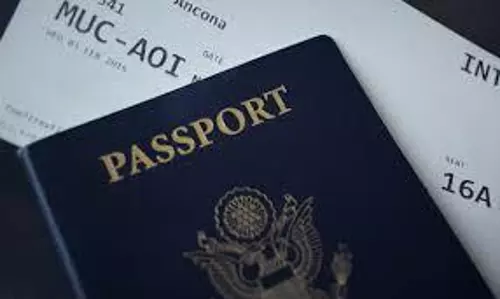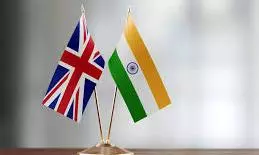
India-UK free trade deal to be signed on July 24, promises major boost for trade and professionals
text_fieldsIn a landmark move set to redefine trade relations between India and the United Kingdom, both countries are poised to sign their long-awaited Free Trade Agreement (FTA) on July 24 during Prime Minister Narendra Modi’s upcoming visit to London.
Commerce and Industry Minister Piyush Goyal will accompany the Prime Minister for the formal signing, according to official sources.
Titled the Comprehensive Economic and Trade Agreement (CETA), the pact marks the culmination of more than two years of negotiations, which concluded on May 6. While the official signing is imminent, full implementation of the deal may take up to a year, as the agreement must still receive approval from the UK Parliament.
One of the most significant takeaways for India is a three-year exemption from social security contributions for Indian professionals temporarily stationed in the UK. This relief, part of the Double Contribution Convention Agreement, is expected to deliver substantial cost savings for Indian companies in sectors like information technology and professional services, giving them a sharper edge in the global marketplace.
The FTA will remove tariffs on 99% of UK-bound Indian export items, immediately benefiting sectors such as textiles, marine products, toys, auto components, and gems and jewellery.
In return, India has committed to gradually reducing tariffs on 90% of its imports from the UK, with 85% of these lines becoming entirely duty-free within a decade.
The agreement also outlines phased reductions in duties on British goods.
Tariffs on UK whisky and gin, currently at 150%, will drop to 40% over 10 years. British-made cars will also see duties cut to 10% under a quota-based system. Additionally, tariffs will be lowered for items like chocolate, cosmetics, lamb, and medical devices.
Beyond trade in goods, the agreement includes robust provisions on digital services and improved mobility for professionals. However, a separate bilateral investment treaty (BIT) is still under negotiation and has not been finalized as part of this deal.
The FTA is expected to generate significant economic gains for both nations. It is projected to increase bilateral trade by £25.5 billion and contribute £4.8 billion annually to the United Kingdom’s GDP in the long term.


















